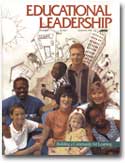Becoming a college professor requires a big adjustment after 13 years in public schools. I have a number of benefits—my own office with more bookshelves than I can fill, a phone, access to the university motor pool when I need to supervise student teachers on site, and some travel money for professional meetings. I have choices. When to have office hours is left up to me. I decide the content of the classes I teach and which books I use. I decide the course of my own research. I also have respect. There are no discipline problems in class. On a search committee, my opinion actually counts. In general, people show some deference to a university professor.
My job as a professor is full of variety and challenge. I can attend meetings in which I learn about other people's research and areas of expertise. There are special speakers and seminars. Time is set aside for meetings with colleagues and pursuing new ideas, finding ways to improve instruction, writing grant proposals and articles. The opportunities for growing and gaining new knowledge are built into the job.
The terrible irony is the kind of professional life that awaits my students. My student teachers are about to enter a profession in which they may have to fight for a file cabinet. There may be a cramped workroom for a whole department, the only place with a phone. Perhaps once in a decade the district will pay for a particular teacher to go to a professional conference. My soon-to-be teachers will have to ask permission to leave the building. They are likely to be locked in to standardized curriculum, teaching methods, and teacher evaluation. They will probably have little choice about the kind of staff development to which they are subject. They may at times be abused by foul-mouthed students and their parents; they will certainly face apathy in their classrooms and criticism in the media.
A typical secondary, 27-minute, “duty free” lunch is hardly sufficient or appropriate time for collaboration with peers, and there is little energy left at the end of the day for the pursuit of new knowledge. The school reforms of the 1980s have served only to increase the pressures and frustrations of a profession long plagued by stress and burnout, as Farber (1991) reports. The actual context of public school teaching is detailed by a growing number of researchers who are rightfully concerned about the implications (Lortie 1975, Lieberman and Miller 1984, Lieberman 1988, McLaughlin et al. 1990).
The upshot is that with all the talk of reform in teacher education, another issue must become high priority with colleges of education. We must find ways to bring about change in the working conditions of public school teachers. Otherwise, we will continue to see many of our best students quickly abandon teaching. Most who stay will never reach their professional potentials, perhaps finally succumbing to what McNeil (1986) calls “defensive teaching.” Finally, the nation's children remain the ultimate victims if teaching cannot be made a satisfying, indeed, a liberating profession.
